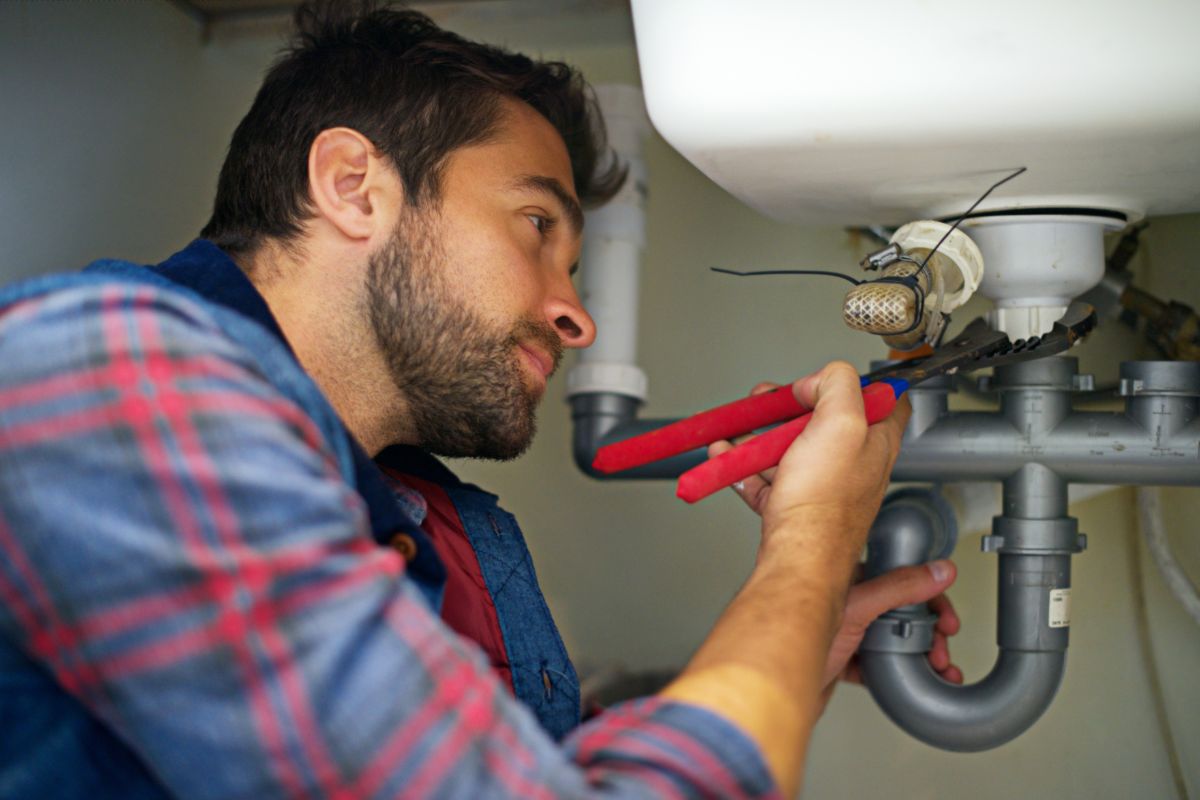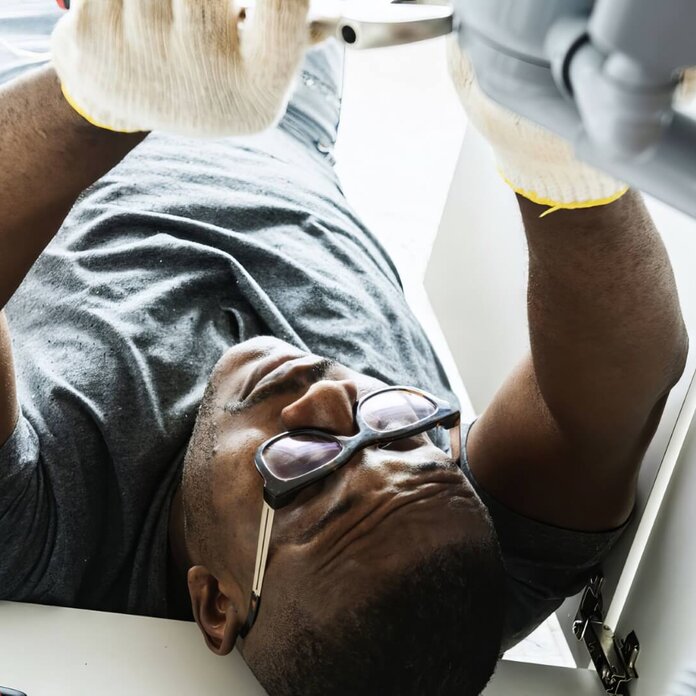Handling Emergency Plumbing Problems: Immediate Fixes Until Specialist Help Arrives
Handling Emergency Plumbing Problems: Immediate Fixes Until Specialist Help Arrives
Blog Article
We have noticed this great article relating to Expert Tips for Emergency Plumbing Repairs directly below on the net and thought it made sense to talk about it with you on this page.

Pipes emergency situations can strike any time, creating tension and prospective damage to your home. Whether it's a burst pipeline, a clogged up drainpipe, or a leaking faucet, knowing how to take care of the circumstance up until an expert plumbing arrives can conserve you from more problems. This short article provides essential emergency situation pipes suggestions to help you mitigate damages and gain back control during a pipes dilemma.
Shut off the Supply Of Water
The first step in any kind of pipes emergency is to turn off the supply of water. For local concerns, such as a leaking faucet or commode, shut off the valve near the component. In the case of a major leakage or burst pipe, situate your home's primary water shut-off shutoff and transform it off instantly. Knowing the area of these valves ahead of time can conserve important time throughout an emergency situation.
Address Small Leakages with Short-term Fixes
Little leaks can promptly end up being significant problems if left uncontrolled. Use these short-lived repairs till expert aid shows up:
While these solutions aren't permanent, they can aid lessen water loss and damage.
Unclog Drains Securely
A blocked drainpipe can be a frustrating and untidy concern. Right here's just how to tackle it:
If these approaches don't function, stay clear of making use of too much force, as it may worsen the blockage.
Handle Overflowing Toilets
An overflowing bathroom can trigger instant turmoil. Below's what you must do:
Turn off Your Hot Water Heater
In specific emergencies, such as a burst pipe, it's wise to shut down your hot water heater. This stops overheating or damage to the unit when water quits moving. Shut off the power supply to the water heater (electric or gas) and allow it cool to prevent potential threats.
Momentarily Stop a Burst Pipe
A burst pipe can lead to substantial water damages in mins. To reduce the problem:
Call a professional plumber immediately to resolve the trouble completely.
Deal With Frozen Pipes Meticulously
In chillier climates, frozen pipelines are a typical emergency. If you suspect an icy pipeline:
Stop More Damage
Taking fast action to decrease damage can conserve you time and money in the future. Here's exactly how:
. Have an Emergency Situation Pipes Package
Prepare a basic pipes emergency package to handle small issues successfully. Your package ought to consist of:
Having these devices accessible can make a considerable distinction in your ability to handle emergency situations.
Know When to Call a Professional.
While quick fixes can aid temporarily, specific pipes issues need prompt professional interest. Call a plumber if:.
Promptly contacting a professional guarantees the problem is solved appropriately and protects against further complications.
Conclusion.
Plumbing emergencies can be overwhelming, however with the best understanding and tools, you can handle the circumstance successfully up until assistance shows up. By shutting off the water system, attending to little leakages, and utilizing momentary repairs, you can reduce damage and keep your home safe. Remember, these tips are temporary solutions; always seek advice from a certified plumbing to deal with the root cause of the problem. Prep work and fast thinking are your best allies in any pipes emergency situation.
8 Helpful Tips for Managing Plumbing Emergencies at Home
If your plumbing system hasn’t failed once, wait for it because almost everyone has a story to tell. Sometimes, it could be simple emergencies such as a leaking pipe, a blocked cistern, or even a big burst pipe. In situations like this, you need to have some handy tips to save you some money and from possible damages.
Take care of minor issues early.
Sometimes, you could have avoided an emergency by taking proactive measures while it was still early. Some major plumbing emergencies can be a result of an ignored minor issue. We recommend that you have items like plumbing tapes and other related items. A plumbing tape can allow you to manage minor leaks before the plumber arrives.
Cut off the water supply.
This tip is essential in almost any type of leakage problem. For problems like minor leakages in the toilet or kitchen, turn off the supply that takes water to the affected pipes. If the leakage is a major pipe, you must shut off the supply valve to the entire building. This will help you avoid flooding your home and neighbors if you share a flat.
Know your plumbing system
Folks typically move into a new apartment without understanding the water supply around the building. This can prove disastrous if a water emergency arises and the plumber is far away. The previous tip will prove useless if you don’t practice this one. More importantly, know where your water shut-off valve is located – you’ll need that knowledge to prevent potential home floods.
Have some common handy tools
There are lots of plumbing emergencies that you can handle without hiring a plumber. That’s why you must keep some tools available always. Some tools that you can use to fix simple plumbing emergencies easily include plumbing tapes, screwdrivers, thread seal tapes, plungers, pliers, tape measures, and rubber gloves.
Insulate your pipes from cold
You’ll save yourself from many plumbing expenses if you protect your water pipes from the cold. This is because of the harmful effects that cold weather can have on your pipes. During winter, your pipes can burst from being overly expected to freezing temperatures. So, make sure insulators are there to keep the pipes working correctly.
Avoid practices that will clog your toilet.
Many people indulge in practices that can damage the plumbing system of the entire building. One of these is when they use their toilet to dispose-off garbage. They flush all kinds of things, such as paper towels, bandages, hairs, female sanitary products, etc., down the toilet. This will block your toilet in the long run, incurring unnecessary expenditures. Dump such waste in the trash instead.
Check your dials regularly.
Sometimes, there could be leakages in your home without noticing them in time. So, constantly monitor your water meter dial. If the dial is reading when there is nobody using water, this is an indicator that there is leaking. Check for leaks immediately. Call a plumber as soon as possible if you can’t find any.
https://www.constructionplacements.com/8-helpful-tips-for-managing-plumbing-emergencies-at-home/

I was shown that report on Expert Tips for Managing a Plumbing Emergency Until Help Arrives from a friend on another site. Kindly take a moment to share this blog post if you enjoyed it. Thanks so much for your time invested reading it.
Book Your Appointment Report this page